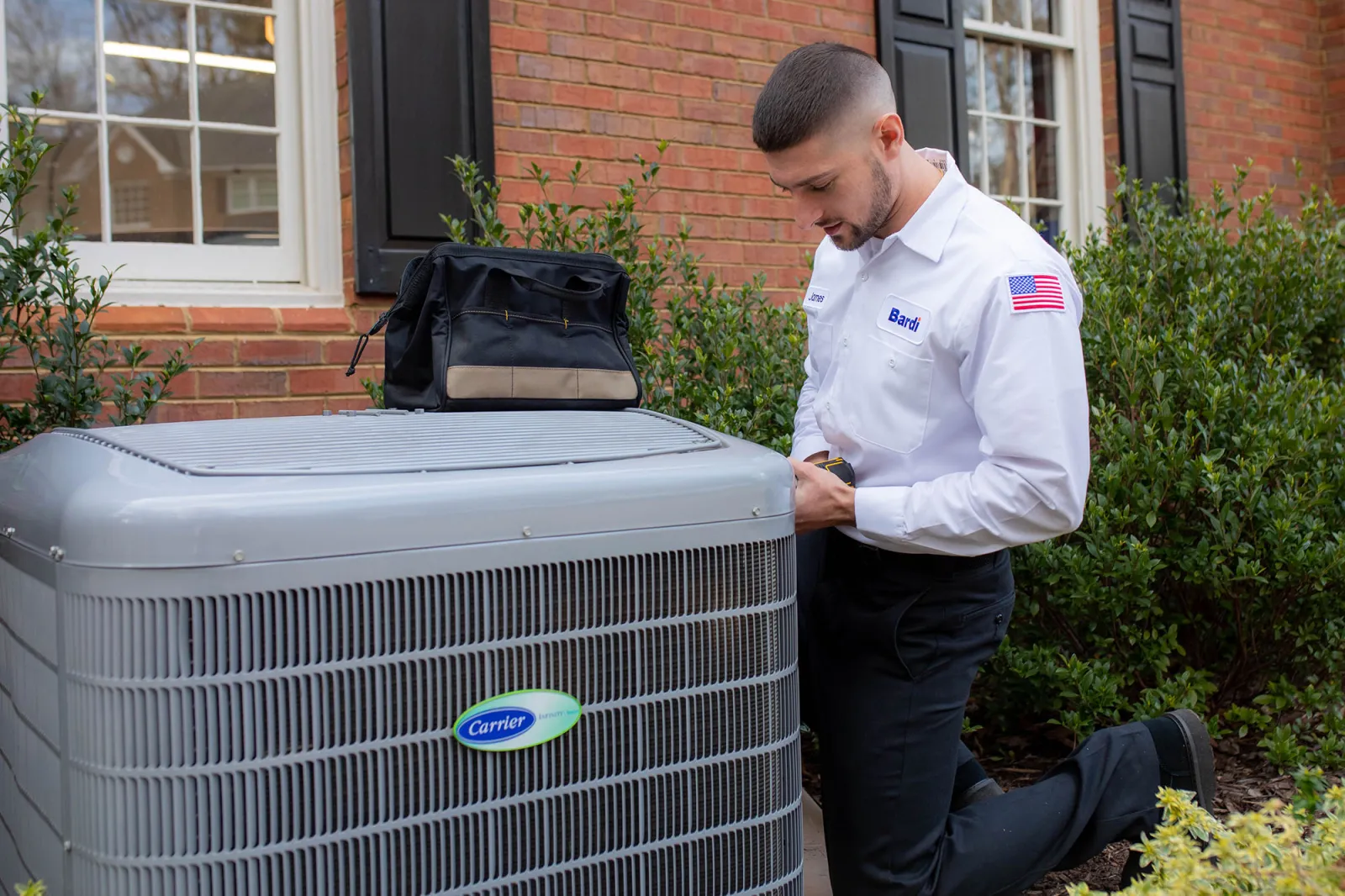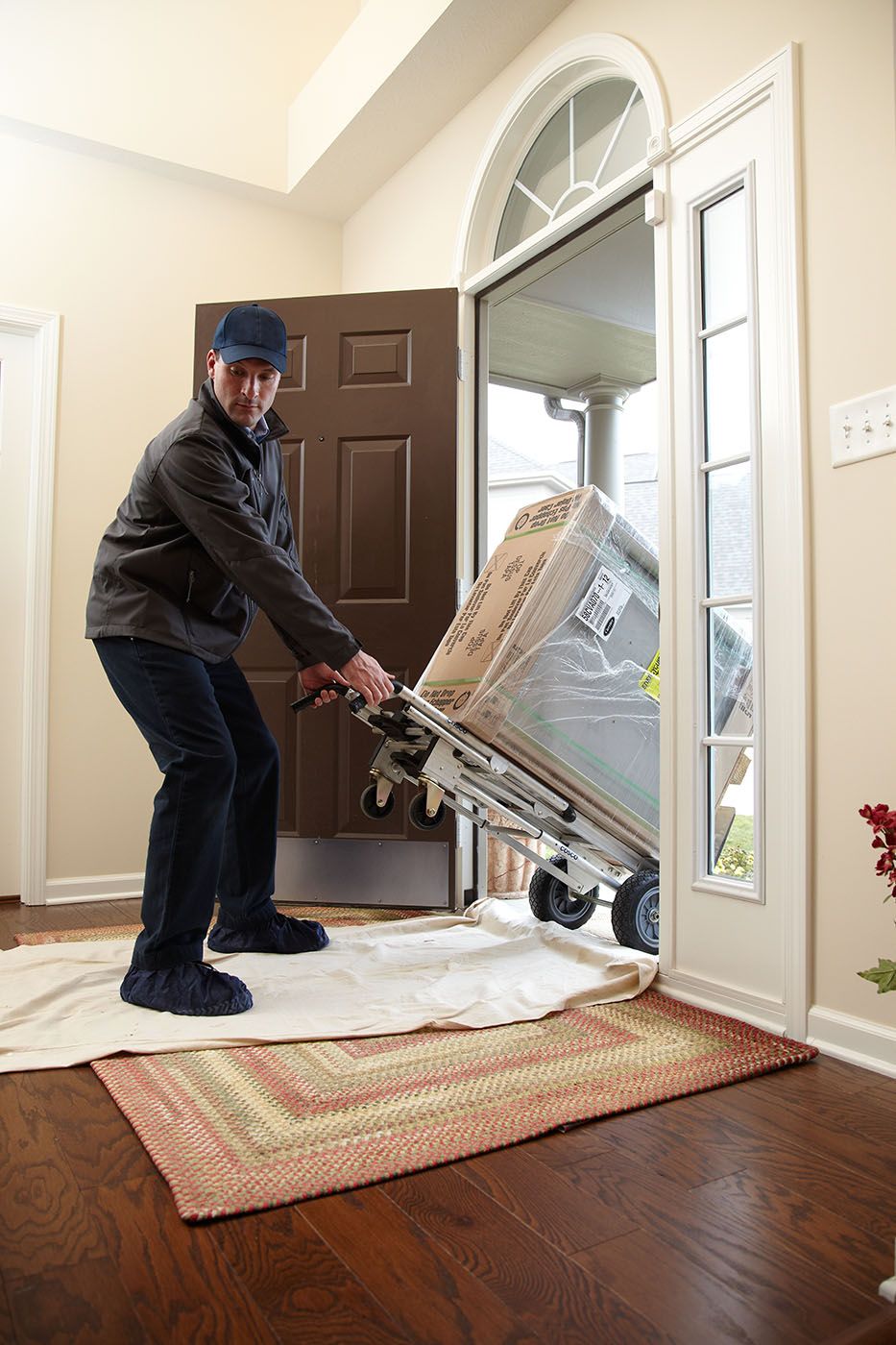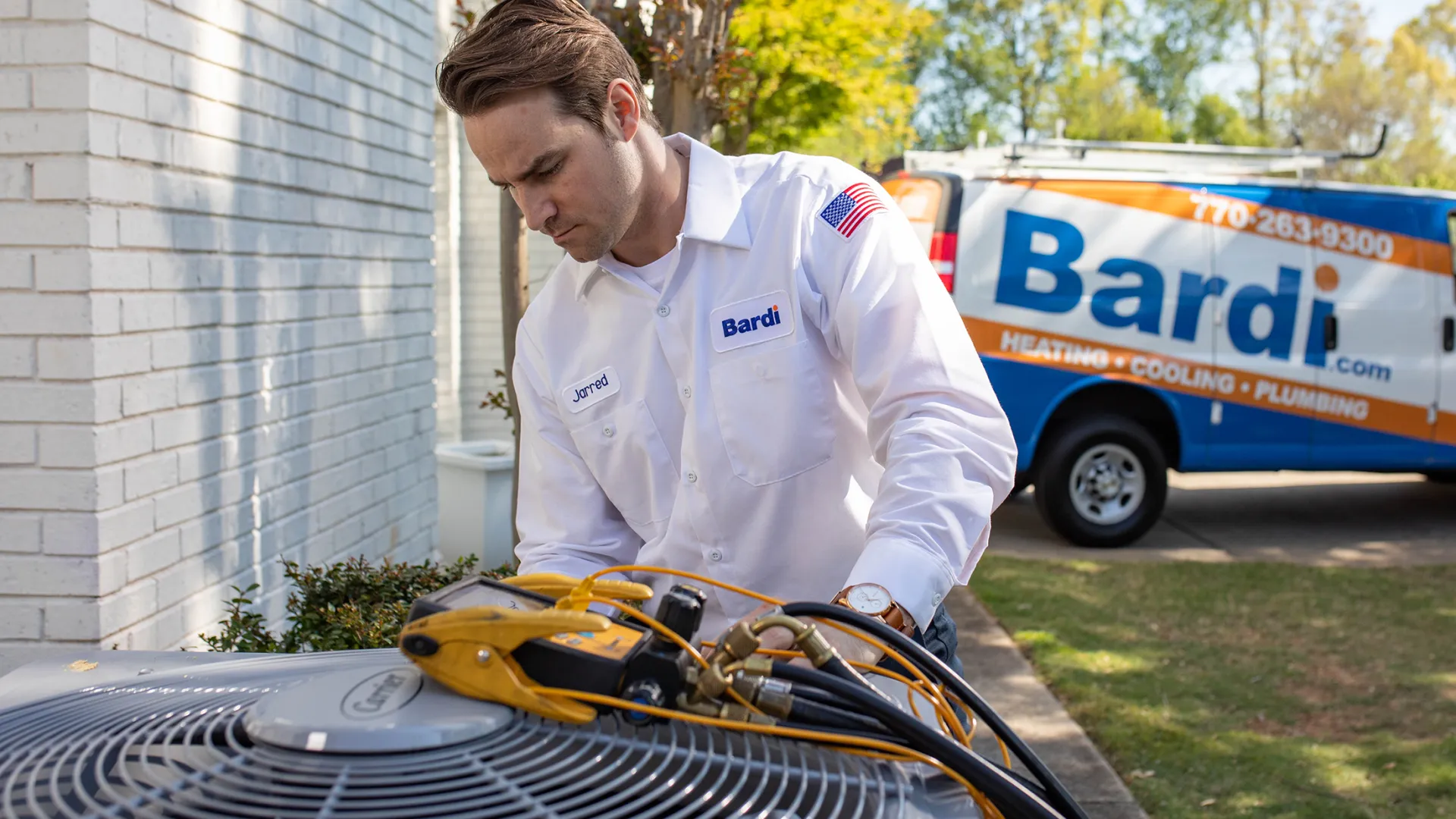Current Offer:
All Electric Heat Pump System - 4.99% APR Financing + Full 10-Year Warranty*
Call (770) 263-9300 for details, or schedule an in-home consultation online.
New systems installed by NATE-certified Bardi technicians. Includes a Smart Wi-Fi Thermostat.
Upgrade Your Home's Comfort with a Heat Pump System from Bardi
At Bardi, we're big fans of heat pumps and make it a point to help our customers understand their advantages. Through our 35 years, we've watched heat pump technology improve, making it possible to now effectively & efficiently heat and cool your home in all seasons.
Our team can help you select the heat pump system that best meets your needs and aligns with your energy-saving goals and budget.
The added advantage of a $2,000 tax credit for high-efficiency models makes upgrading more appealing than ever.
To arrange a no-cost in-home consultation, call us at (770) 263-9300 today.
Trusted Atlanta HVAC & Plumbing Since 1989
Family-Owned. Community Awarded. Guaranteed Quality.

WHY CHOOSE BARDI?
Bardi Guarantees
Bardi puts your satisfaction first. With every heating, cooling, and plumbing service we offer, you get the backing of our solid guarantees. Here's our pledge to you for complete peace of mind:
- Best Price Guarantee
- 100% Satisfaction Guarantee
- Zero Lemons Guarantee
- Lifetime Installation Quality & Workmanship Guarantee
- Talk to the Owner Guarantee
- And More
Understanding Heat Pumps: A Guide for Efficient Home Comfort
Heat pumps provide an affordable and eco-friendly way to heat and cool your home.
Why Go for a Heat Pump?
ENERGY SAVINGS: Heat pumps stand out for their efficiency. Unlike traditional systems that create heat, heat pumps transfer it from one location to another. This operation allows them to deliver equivalent heating or cooling performance while consuming less energy, leading to reduced utility expenses.
FLEXIBILITY: Heat pumps offer the flexibility to maintain a uniform temperature across your home or to set different temperatures in various rooms, depending on your preference.
SAFETY FEATURES: Without relying on combustion to produce heat, heat pumps eliminate the dangers of carbon monoxide exposure and other safety risks common with conventional heating methods.
LONGEVITY: With fewer mechanical components than traditional heating systems, heat pumps are less prone to breakdowns. They are engineered for all-season performance, ensuring durability against harsh weather and temperature extremes.
ECO-FRIENDLINESS: Compared to standard heating and cooling solutions, heat pumps generate significantly lower amounts of greenhouse gas emissions, positioning them as a greener alternative for the environment.

Understanding How Heat Pumps Function
Heat pumps are a modern solution for heating and cooling your home, utilizing electricity over traditional fuels like natural gas or propane.
A heat pump system consists of two primary components: an outdoor compressor unit, and an indoor unit that includes a refrigerant and piping system, driven by a fan.
In colder months, the outdoor unit efficiently gathers low-temperature heat from the environment — either the ground or the air — and transfers it inside to warm your home.
Conversely, in warmer months, it reverses this process, removing heat from your home and releasing it outside, thereby cooling your living space.
At Bardi, we're convinced that a heat pump installation is key to ensuring year-round comfort for your family, even under challenging weather conditions.
Beyond offering comfort, heat pumps are also cost-effective, providing the heating and cooling coverage of traditional systems but at a significantly reduced expense.
Moreover, heat pumps are a friend to the environment, aligning with eco-friendly practices.
Your comfort is our priority, and Bardi is always on standby to address any heat pump concerns or repairs promptly, ensuring you and your family's comfort is uninterrupted.


What Makes Bardi Different
We have over 35 years of experience providing the best heating and air conditioning solutions in Atlanta.
Professional Technicians
Our technicians are highly-trained, licensed, and experienced pros with an eye for quality and a heart for customer service
Manufacturer Certified
We're certified in top brands like Carrier and Goodman, expertly handling your HVAC needs, indoor air quality, and ductwork for peak performance.
Neighborhood Roots
Same-Day Service
With technicians stationed across Atlanta, we're able to provide the speedy service your home needs, often within a few hours







